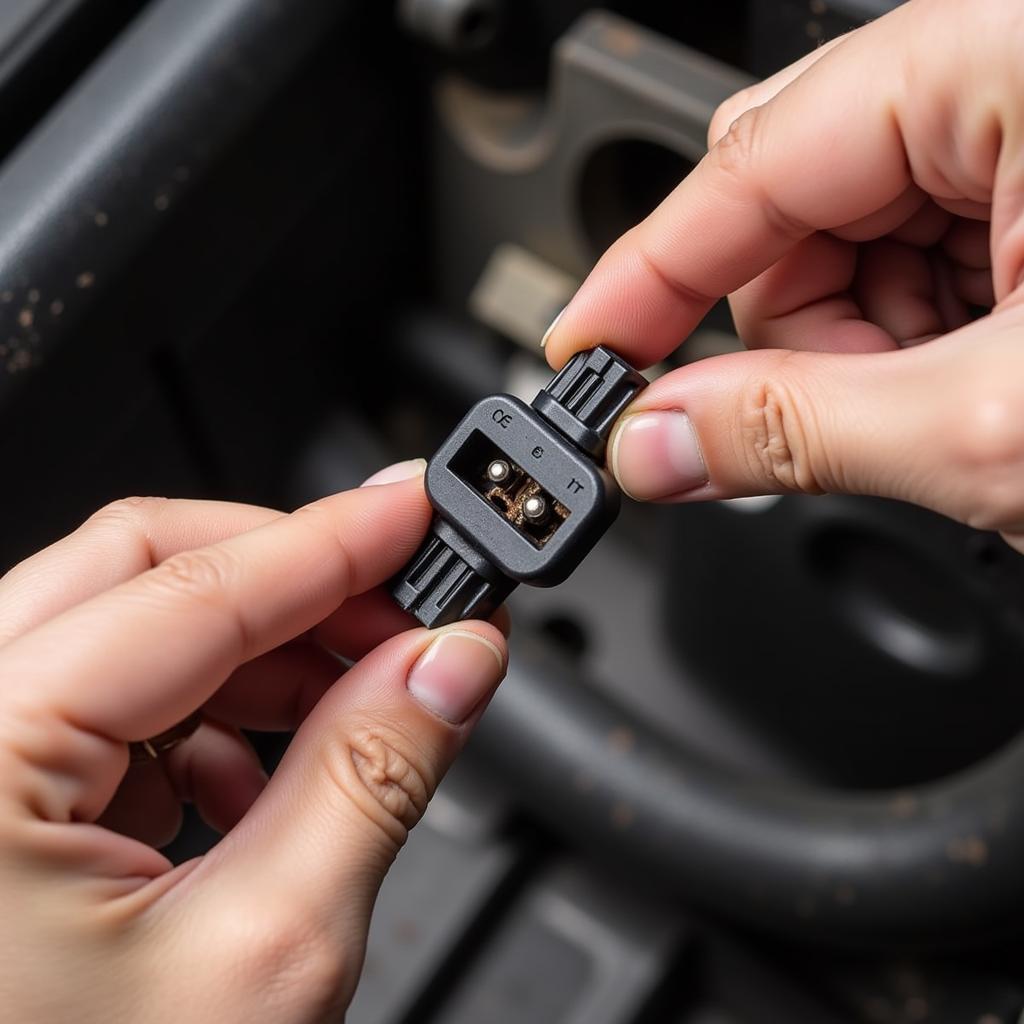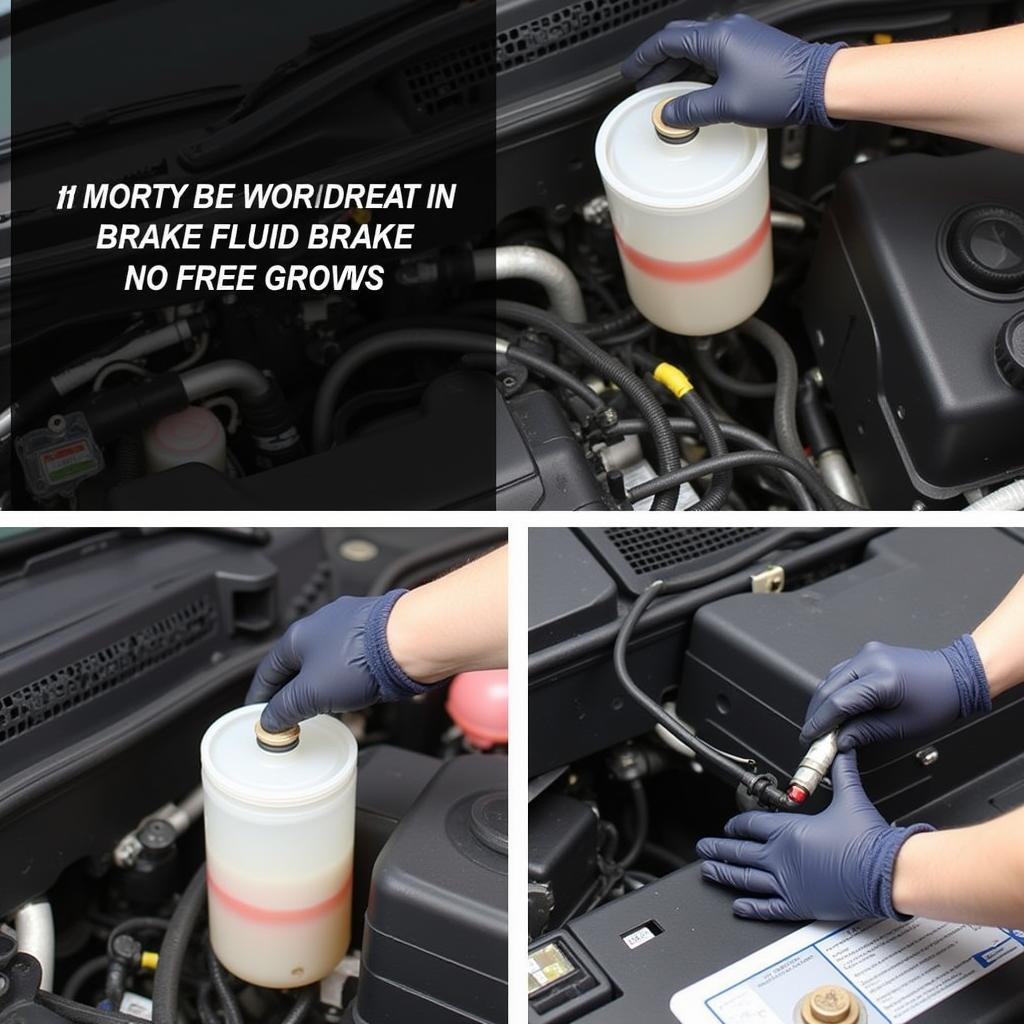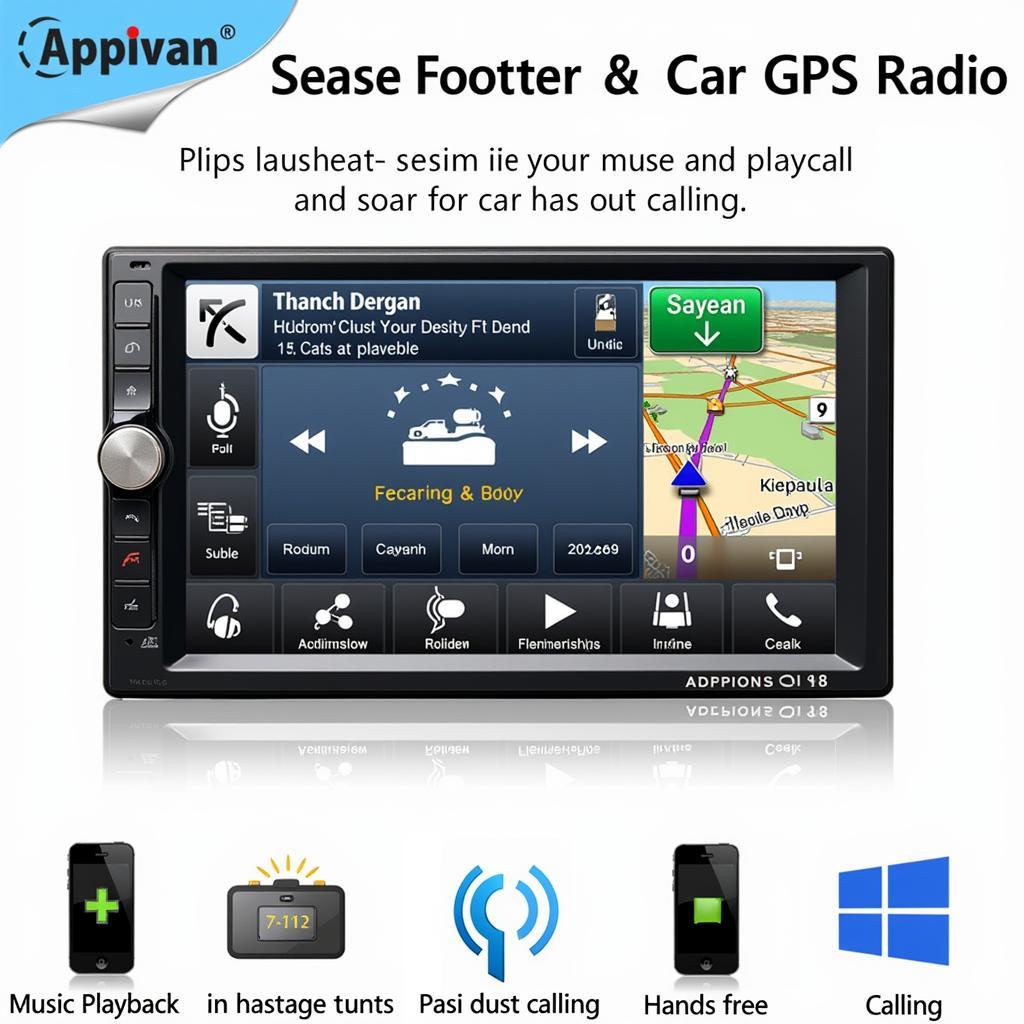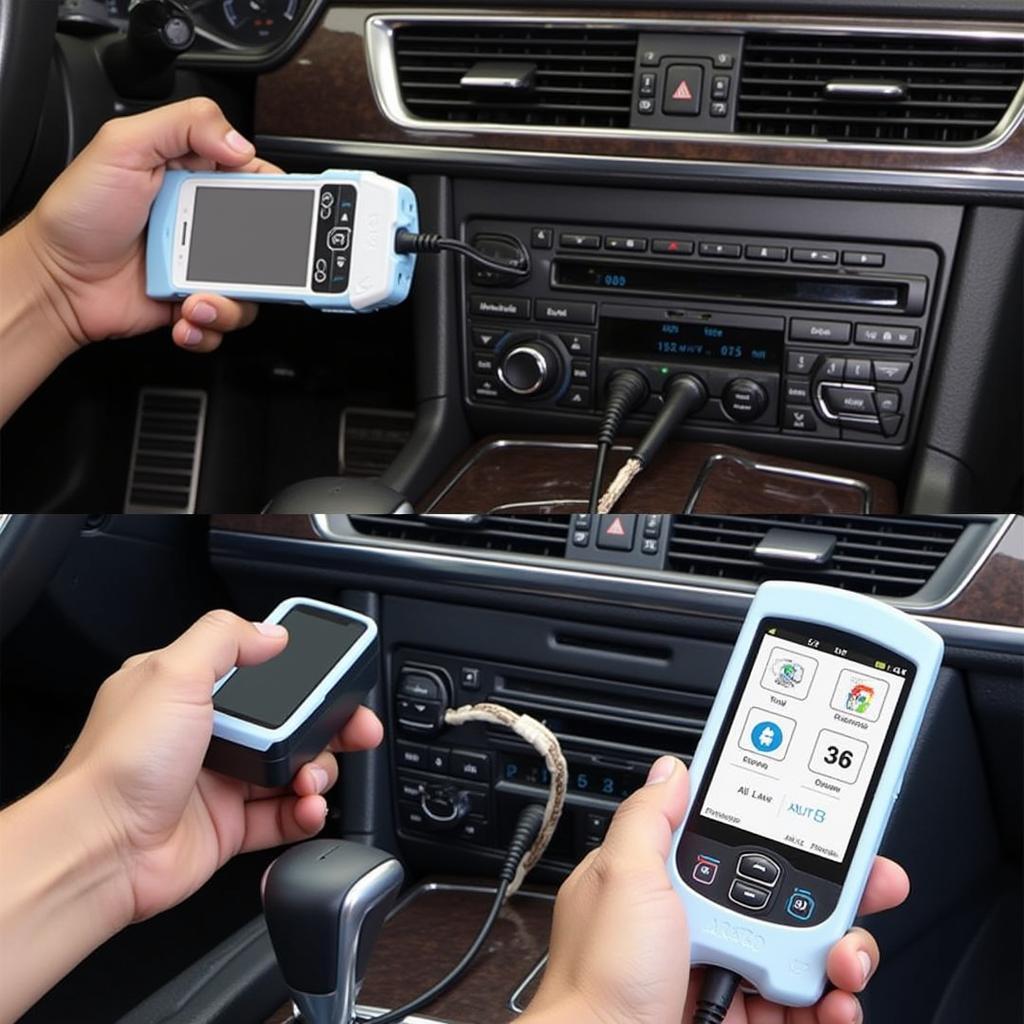A “warning brake failure” message illuminating your 2005 E320 Mercedes dashboard can trigger immediate concern. This alarming notification, often accompanied by a red “BRAKE” light, signals a potential issue with your braking system, demanding your immediate attention. While the reasons behind this warning can range from simple fixes to more complex issues, understanding the potential causes and knowing how to address them is crucial for your safety and the vehicle’s well-being.
Common Culprits Behind the “Warning Brake Failure” Message
Several factors can trigger the dreaded “warning brake failure” message on your E320’s dashboard. Let’s explore some of the most common culprits:
1. Low Brake Fluid Level
The most frequent offender behind this alarming message is often a low brake fluid level. Your E320, like all vehicles with hydraulic braking systems, relies on brake fluid to transmit force from the brake pedal to the wheels, stopping the car.
How to Check:
- Locate the brake fluid reservoir under the hood. Refer to your owner’s manual for the exact location.
- Check the fluid level. Ideally, the fluid should be between the “Min” and “Max” marks on the reservoir.
What to Do: If the fluid level is low, carefully top it off with the recommended brake fluid type for your E320 (usually DOT 4). However, simply adding fluid might not solve the problem if there’s an underlying leak. If you notice a consistent need to refill the brake fluid, it’s crucial to have the system inspected for leaks by a qualified mechanic.
2. Worn Brake Pads
Brake pads are designed to wear down over time. As you use your brakes, the friction material on the pads gradually diminishes. Extremely worn brake pads can trigger the “warning brake failure” message because they affect the brake fluid level and the overall braking performance.
How to Check: Visually inspect your brake pads through the wheel spokes. If the friction material is thin (less than ¼ inch) or you notice a scraping metal sound when braking, it’s time for a replacement.
What to Do: Replace worn brake pads as soon as possible. Driving with worn brake pads significantly compromises your stopping power and can lead to more costly repairs to your brake rotors.
3. Faulty Brake Pad Wear Sensors
Many modern vehicles, including your E320, are equipped with brake pad wear sensors. These handy sensors are typically embedded within the brake pads and trigger a warning light on your dashboard when the pads wear down to a certain level.
How to Check: If your brake pad wear sensor is faulty, it might trigger the “warning brake failure” message prematurely, even if your brake pads are still in good condition. Diagnosis typically requires a mechanic to inspect the sensors and the wiring.
What to Do: If a faulty sensor is detected, it needs to be replaced. It’s recommended to have this done by a professional, especially if you’re not comfortable working with your car’s electrical system.
 Faulty Brake Pad Sensor E320 Mercedes
Faulty Brake Pad Sensor E320 Mercedes
4. ABS System Malfunction
Your E320 is equipped with an Anti-lock Braking System (ABS). This crucial safety system prevents wheel lockup during hard braking, helping you maintain steering control. However, a malfunction within the ABS system, often due to a faulty sensor or control module, can also trigger the “warning brake failure” message.
How to Check: Diagnosing an ABS issue usually requires specialized equipment. If you suspect an ABS problem, it’s best to take your E320 to a qualified mechanic specializing in Mercedes-Benz vehicles.
What to Do: Addressing ABS issues can range from replacing a faulty sensor to repairing or replacing components within the ABS control module. Due to the system’s complexity, it’s best left to professionals.
5. Brake Fluid Leak
A leak in your braking system, whether it’s in the lines, hoses, calipers, or wheel cylinders, can lead to a significant drop in brake fluid pressure. This drop can activate the “warning brake failure” message and significantly reduce your braking ability.
How to Check: Look for signs of brake fluid leaks under your car. The fluid is typically clear to amber in color and has a slightly oily consistency. Also, inspect the brake lines and hoses for any cracks, bulges, or wetness.
What to Do: A brake fluid leak requires immediate attention. Do not drive your car if you suspect a leak. Have your vehicle towed to a qualified mechanic to identify and repair the leak.
Expert Insights from a Mercedes-Benz Specialist
We spoke with Johnathan Miller, a seasoned Mercedes-Benz mechanic with over 20 years of experience, who shed light on the “warning brake failure” message in E320 models:
“While the ‘warning brake failure’ message can seem daunting, it’s often related to simpler issues like low brake fluid or worn brake pads, especially in well-maintained E320s. However, ignoring this warning is never an option. A thorough inspection by a qualified mechanic is essential to diagnose the root cause and ensure your safety on the road.”
 Checking Brake Fluid Reservoir on E320
Checking Brake Fluid Reservoir on E320
Conclusion
Encountering a “warning brake failure” message in your 2005 E320 Mercedes is a serious matter that should never be ignored. While the causes can range from straightforward maintenance needs to more complex system malfunctions, timely diagnosis and repair are crucial. Regularly checking your brake fluid, inspecting your brake pads, and addressing any warning lights promptly can help prevent more significant problems and keep your E320 safe and reliable for years to come. Remember, when it comes to brakes, erring on the side of caution is always the wisest approach.


